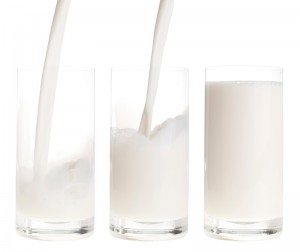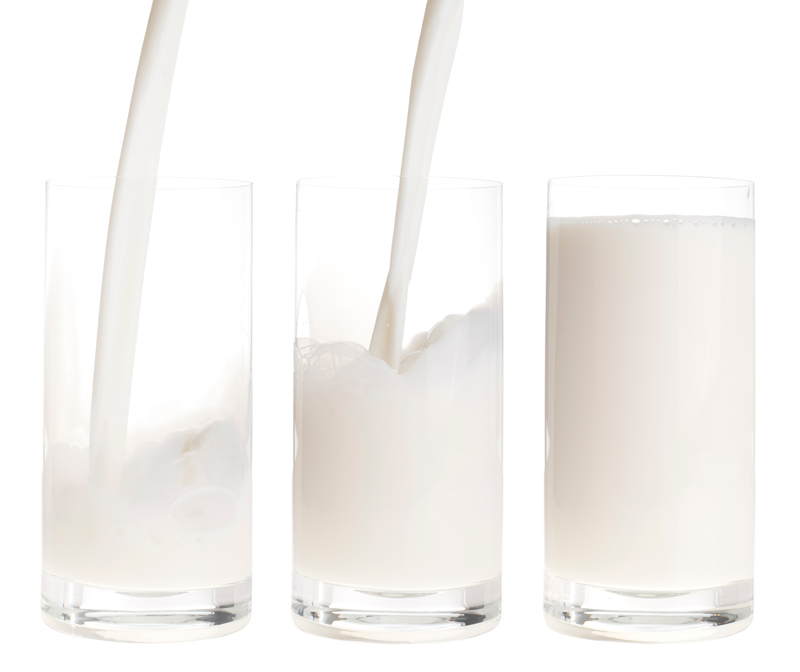 In my nutritional counseling practice I see a lot of individuals who say they are lactose-intolerant, or don’t tolerate cow’s milk.
In my nutritional counseling practice I see a lot of individuals who say they are lactose-intolerant, or don’t tolerate cow’s milk.
I created this chart to compare some of the main features of each type of milk and”mylk” (milk substitute). Be sure to read the notes that follow.
| Milks vs Mylk: Comparison at a Glance | ||||
| Commercial | Protein | Lactose | Calories | Allergy/intolerance |
| milk / mylk | (in 250 mL) | (in 250 mL) | risk (1 being highest) | |
| Cow’s milk (2%) | 10 g | yes | 122 | 1 |
| Use organic milk. |
||||
| Goat’s milk | 9 g | yes | 168 | 2 |
| Less lactose than cow’s milk. |
||||
| Soy beverage* | 6-9g | no | 70 -90 | 3 |
| Use Certified Organic soy beverage only |
||||
| Almond beverage* | 2 g | no | 40 | 4 |
| Almond is a tree nut. |
||||
| Rice beverage* | 1 g | no | 80- 120 | 6 |
| Highest glycemic index of all mylks. |
||||
| Coconut beverage* | 0 g | no | 45 | 5 |
| Not to be confused with canned coconut milk or coconut water. Usually safe for those with tree nut allergies.* unsweetened only |
Determining the best milk/mylk for the individual depends on many factors, including age, pregnancy, nursing, and health condition. For example, with the exception of coconut ‘milk’, plant ‘mylks’ do not contain sufficient fat for an infant’s brain development. Therefore, babies should NEVER be given plant-based milk substitutes unless the product is specifically called a formula.
Allergy/Intolerance: Interestingly, allergy risk is correlated with the amount of protein in the milk/mylk. Accordingly, rice and coconut mylks have the lowest risk of allergy/intolerance. Despite the almond nut itself being a good source of plant-based protein, almond mylk is very low in protein. However, it should still be avoided by those with severe allergy to tree nuts.
Milk and sugar content: The figures above are for unsweetened, no sugar added products. Sadly, there are a lot of varieties of the mylks here that have a LOT of added sugars. Beware of flavoured varieties for this reason. Also, rice milk is not recommended for diabetics because it is so naturally high in sugars, and almost completely devoid of protein.
Finally, to be acceptable as a milk substitute, the plant-based mylks all have been fortified with calcium. Generally, I find that one cup of milk substitute contains roughly the same amount of calcium as a glass of cow’s milk. As for vitamin D—even cow’s milk is supplemented with D-3. Most of the plant mylks are, too.
Use the chart to narrow down the safest possibilities for you, and experiment, watching closely for changes in energy, digestion and elimination.

